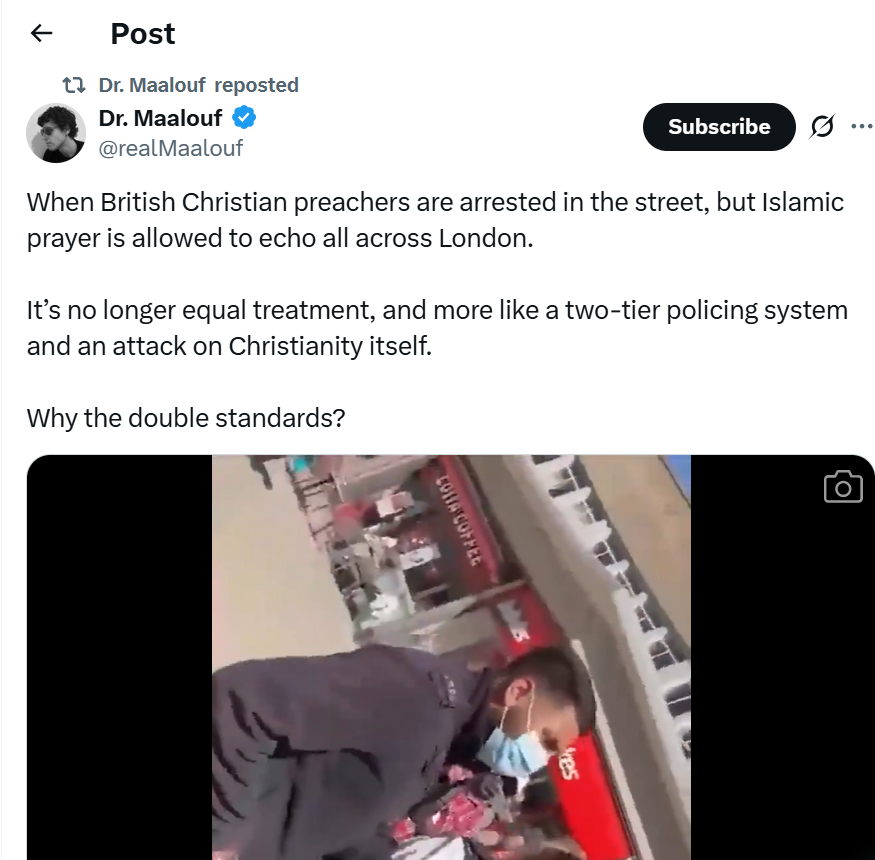
At the heart of this debate is a tension between freedom of religion and public order laws. Critics argue that Christian preachers are often targeted for complaints that their messages are "offensive" or "hateful," whereas Islamic public gatherings are more likely to be framed as cultural or peaceful expressions of identity. Law enforcement tends to act based on complaints received or potential for unrest, but the threshold for what is considered “incitement” or “public nuisance” appears inconsistent. This unevenness fuels frustration among Christians who feel their voices are being silenced in the public square, even in a nation with deep-rooted Christian traditions.
 The broader concern is not simply about street preaching or public prayer, but about the principles of equal treatment, freedom of expression, and the role of christianity in a rapidly changing society. If the authorities appear to suppress Christian expressions while accommodating Islamic ones, it undermines trust in institutions and can deepen social divides. Britain’s diversity is a strength, but only if it is underpinned by fairness and consistency in how all religious groups are treated. True pluralism requires that both Islamic prayers and Christian preaching be protected equally, without fear, favoritism, or selective censorship.
The broader concern is not simply about street preaching or public prayer, but about the principles of equal treatment, freedom of expression, and the role of christianity in a rapidly changing society. If the authorities appear to suppress Christian expressions while accommodating Islamic ones, it undermines trust in institutions and can deepen social divides. Britain’s diversity is a strength, but only if it is underpinned by fairness and consistency in how all religious groups are treated. True pluralism requires that both Islamic prayers and Christian preaching be protected equally, without fear, favoritism, or selective censorship.




 click and follow Indiaherald WhatsApp channel
click and follow Indiaherald WhatsApp channel